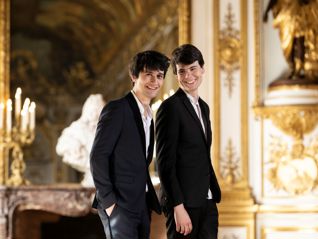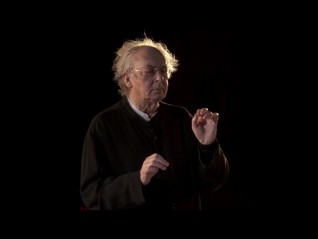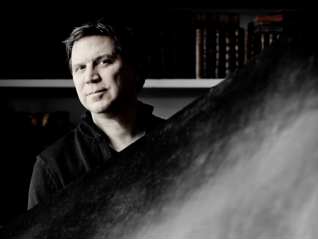Vox Luminis
‘As if it had been written especially for them,’ the press cheered about The Fairy Queen à la Vox. For his pioneering semi-opera, Henry Purcell used a text by that other English luminary, William Shakespeare. The result - a fairy tale in which nothing is what it seems - is inhabited by shadow puppets in Isaline Claeys' staging. Scenographer Emilie Lauwers and videographer Mário Melo Costa make the enchantment of this Baroque highlight complete.
Programme
-
Henry Purcell
The Fairy-Queen (1692)
libretto: anounymous, after William Shakespeare's A Midsummer Night's DreamProgramme subject to change
1659-1695
Musicians
- Viola Blache, Erika Tandiono, Carine Tinney, Zsuzsi Tóth, Stefanie True, Caroline Weynants soprano
- Helene Erben, Jan Kullmann, Vojtěch Semerád, Korneel van Neste alto
- Olivier Berten, Hugo Hymas, Jacob Lawrence, Kieran White tenor
- Marcus Farnsworth, Sebastian Myrus, Lóránt Najbauer bass
- Simon Robson narrator
- Tuomo Suni, Antina Hugosson, Jacek Kurzydlo violin I
- Cynthia Freivogel, Birgit Goris, Jorlen Vega violin II
- Johannes Frisch, Annemarie Kosten Dür, Wendy Ruymen viola
- Ronan Kernoa, Edouard Catalan, Octavie Dostaler-Lalonde bass violin
- Benoît Vanden Bemden violone
- Jasu Moiso, Gustav Friedrichson, Armin Köbler oboe
- Anaïs Ramage bassoon, recorder
- Rudolf Lörinc, Moritz Görg trumpet
- Marianna Soroka percussion
- Anthony Romaniuk harpsichord, organ
- Justin Glaie, Simon Linné theorbo, guitar, lute
- Lionel Meunier bass, recorder, artistic direction




